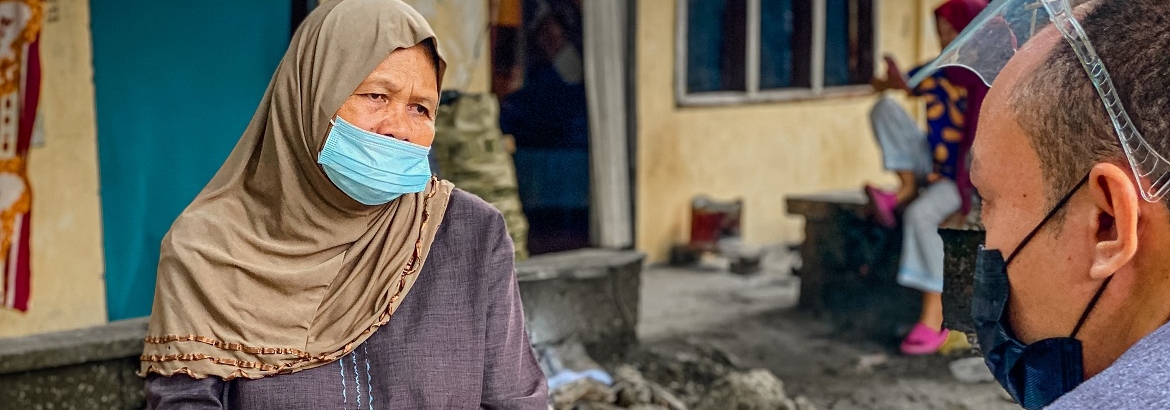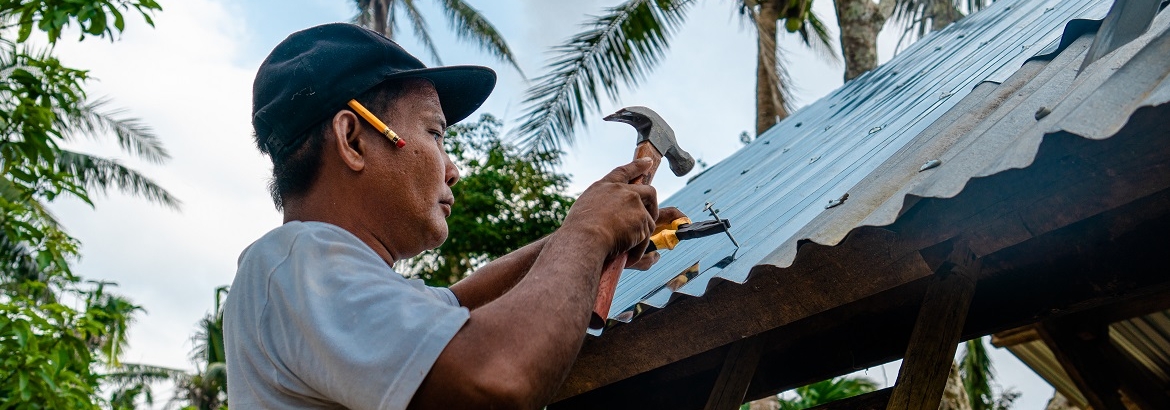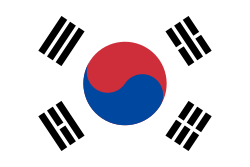IOM Vision
IOM Philippines is committed to promoting safe, orderly, and humane migration, grounded in the belief that migration benefits both migrants and the wider society. IOM will assist the government in supporting some of the most vulnerable populations, including migrants, returnees, internally displaced persons (IDPs) and their host communities, with humanitarian protection and assistance, coupled with community-driven and sustainable approaches that are in line with regional, national and global priorities, particularly the Sustainable Development Goals, Global Compact for Migration, UN Socioeconomic and Peacebuilding Framework for COVID-19 Recovery, and the Philippines Development Plan.
Objective
Saving lives and protecting people on the move
(1) IDPs that remain in situations of displacement due to natural hazards, effects of climate crises, and human-made disasters, including IDPs unable or unwilling to return and IDPs at high risk of protracted displacement; (2) Local population in areas characterized by large levels of displacement and communities of return where essential services are inadequate or overstretched/interrupted; and (3) Migrants who have returned from international or domestic ports of departure but are in need of humanitarian assistance due to COVID-19 movement restrictions or COVID-19 induced socio-economic impacts.
|
IOM will provide site management support to local governments operating emergency response efforts for populations displaced by disasters and crisis, aiming to enhance national and local policies, build capacities of the government and community stakeholders, and provide relevant resources to ensure minimum humanitarian standards are promptly met in camps and camp-like settings. IOM’s initiatives will include the following:
|
|
IOM will provide mental health and psychosocial support (MHPSS) with a focus on services that improve access to mental health services for the most vulnerable groups. All MHPSS activities will be in line with the IOM Manual on Community-Based Mental Health and Psychosocial Support in Emergencies and Displacement, and will be tailored to the specific context, including disasters and conflict. IOM intends to mainstream MHPSS activities in all emergency response projects in any location, to the extent possible. IOM's interventions will include:
|
|
Aiming to assist families and individuals in vulnerable situations, IOM will provide access to essential services and commodities, for example, through the provision of hygiene kits and hygiene promotion activities to encourage improved hygiene practices, as well as the construction of WASH facilities coupled with WASH governance to ensure long-term operation and maintenance of the facilities. These activities are aimed to improve overall infection prevention and control for COVID-19 and other diseases and will involve targeted risk communication and community engagement. IOM's initiatives will include:
|
|
Through preparedness actions and emergency response, IOM will provide shelter assistance to displaced populations and those impacted by disasters and crises. The activities will provide targeted populations with prompt access to emergency and more durable shelters that ensure safety, health, privacy and dignity. In the context of the COVID-19 pandemic, shelter activities will mainstream early decampment strategies and health-related considerations. IOM's initiatives will include:
|

Objective
Driving solutions to displacement
|
(1) IDPs still living in camps and camp-like settings requiring a better assessment of their situation and support for safe and sustainable voluntary returns or other durable solutions; (2) Host community members with high socioeconomic vulnerabilities; (3) Members of conflict/hazard prone or affected, fragile communities; (4) Vulnerable Returning Overseas Filipinos and community members in areas of return with access to basic services, livelihoods, safety and security; (5) Government authorities and community-based organizations, to contribute to capacity building and facilitate community stabilization; (6) Former combatants especially women combatants, youth, conflict-affected community members, indigenous peoples, and members of traditional and religious groups. |
|
IOM will actively support efforts at the national, regional and community levels, to prevent, manage and resolve conflict as a driver of displacement and an obstacle to the return and reintegration of displaced populations and former combatants. IOM will strengthen local capacities to promote the peaceful resolution of conflicts for communities to enjoy the dividends of peace through:
|
|
IOM will serve to establish stability and security, restore trust among community members, vulnerable populations and local authorities and lay the foundations for durable solutions, lasting peace and sustainable development. Initiatives will focus on inclusive governance and social cohesion, inclusive economic recovery, and access to essential services, which include:
|
|
Through its response and assistance to the government partners and the affected population, IOM will mainstream sustainable approaches that effectively promote durable solutions including safe and dignified returns, local integration and relocations to safe places. This includes:
|
|
IOM will provide support to address land issues in Mindanao, which have been a persistent driver of conflict in the region, stemming from historical injustices and human rights violations involving the unjust dispossession of land and property rights and customary land tenure. IOM will contribute to the government effort in improving the Transitional Justice and Reconciliation (TJR) mechanisms in a consultative, transparent, and community-based manner through the following:
|
|
IOM will continue to support health system strengthening efforts in the Philippines, by bolstering the preparedness and response capacity of the national healthcare system, including the implementation of the IHR (2005). IOM will support strengthening efforts pertaining to improving capacity related to the COVID-19 response and other health threats such as tuberculosis in the country. To achieve this, IOM will procure and provide critical equipment, alongside overseeing robust capacity building efforts for healthcare workers, partners and relevant personnel. IOM will support local governments and their healthcare system through the following:
|
|
IOM will support key actors in conflict-affected communities in Mindanao with MHPSS activities. These activities aim to not only address the MHPSS needs of the affected population, but also promote dialogue, social cohesion and community healing towards recovery and crisis prevention. Initiatives will include:
|
Objective
Strengthen preparedness and reduce disaster risk
|
(1) Government officials, including national and local authorities; (2) Community leaders, to better equip them to deal with disaster management to reduce vulnerabilities; (3) Members of government and non-governmental actors, such as civil society organizations and community-based organizations, to support their efforts to include and mainstream preparedness, risk reduction, and climate change adaptation and resilience to epidemics; (4) Members of conflict/hazard prone or affected, fragile communities. |
|
IOM will support in developing the capacities of government and non-governmental partners in disaster prevention, and provide support for populations who are likely to be severely affected by the impact of disasters and crises. Initiatives will include:
|
|
IOM will provide support for local authorities and communities to enhance the speed, volume and quality of the emergency response in coordination with relevant partners, which will contribute to their improved capacity in anticipating, responding to, and recovering from an emergency. This will include:
|
|
IOM will contribute to mainstreaming and institutionalizing MHPSS in the government’s public health policies, services and programmes, especially in conflict-affected areas in Mindanao.
|
|
IOM will enhance preparedness through prepositioning key supplies for WASH and building local capacity especially on infection, prevention and control (IPC) measures. Initiatives will include:
|
|
IOM will help facilitate safe and dignified migration, especially for returnees, by providing support at points of transit and return. This will include:
|
Objective
Contribute to an evidence-based and efficient crisis response system
|
(1) Government officials at the national and local level, especially the duty bearers, to enhance their coordination, information management and to provide technical and operational assistance to their response efforts in crisis; (2) IDPs, migrants and returnees, and members of their host communities, conflict/hazard-prone or affected communities; (3) Crisis response actors from non-government sectors, members of UN agencies and their dependents to ensure their continuance of response efforts to crisis. |
|
IOM collects, analyses and disseminates critical multi-layered information on the mobility, vulnerability, and needs of displaced and mobile populations in the Philippines. The following activities will be considered for implementation in any relevant settings, and the geographical areas and demographic groups and components of the DTM will be determined depending on the context and needs, taking into consideration the existing available data at that point. Initiatives will include:
|
|
IOM will provide health services to eligible UN personnel and dependents, humanitarian actors and other eligible persons in need of care as part of the initiative to provide quality health services complementary to UN system health services in situations where the local healthcare system is strained or there is a lack of quality healthcare services (previously referred to as the “First Line of Defence (FLoD)” for the COVID-19 response) in the Philippines. The activities may include:
|
Philippines
The map used here is for illustration purposes only. Names and boundaries do not imply official endorsement or acceptance by IOM.
Figures are as of 31 December 2023. For more details of IOM's operational capacity in country, please see the IOM Capacity section.

















